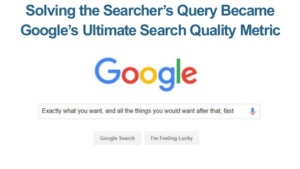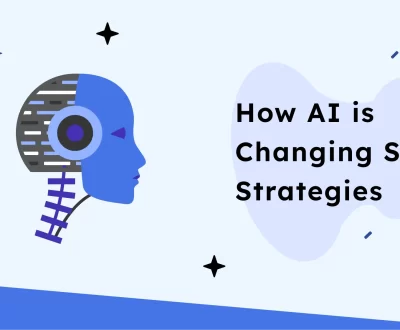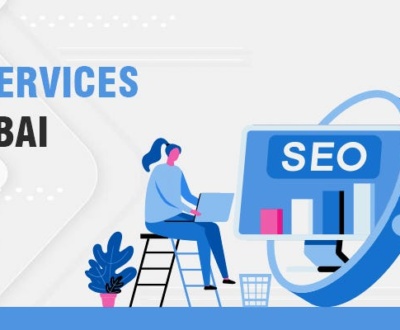
As most people in the SEO (Search Engine Optimization) community are aware of the fact that writing for SEO has evolved and changed greatly over the years. What used to be great is no longer good enough and many new techniques have been incorporated by crawlers when awarding high ranking in searches. While some of us are quite knowledgeable about all the changes that have taken place, yet unfortunately it is not hard to find bad advice going around in the community and surprisingly enough, from people you’d expect to be somewhat of SEO experts.
Although you can safely say that SEO and everything around it is no longer how we knew it a decade or so ago, yet much of the basic principles have stayed pretty much similar on the front end with all the major changes taking place behind the curtains. However, that fact is only true when you follow common sense and don’t cut any corners bypassing natural things and stuffing keywords where they don’t adjust naturally. This is specific to SEO writing of course and that is what we will be discussing through the course of this article:
(i) : For long term results, focusing on “solving the searcher’s query” is of great significance
Traditionally, targeting certain important keywords used to be quite enough when looking to rank higher in searches and stay there for those relevant keywords as well but with search engines (especially Google) having gotten so much better at reading and understanding the information provide and matching it with what a searcher wants, the new requirement needs service providers to solve searcher’s queries rather than just provide keyword optimization. Sites that can’t do that tend not to rank higher in the first place and even if somehow any of those do get to the top, they will certainly be beaten down by someone who is doing all of that efficiently

(ii) : 2018 is the year of intent marketing and only after that comes exact keyword matching
If you go around creating pages for each type of keyword searched by people, you would end up paying more than what you can make on domains and putting in more effort in creating all these pages than all the rest of the similar product industry has done combined. Consider the example of a tennis ball seller, if they would create every single page for “tennis ball”, “tennis balls”, “yellow tennis balls”, “yellow tennis ball”, “long lasting tennis balls”, “long lasting tennis ball” or all other relevant attached keywords, it is easy to understand why they would be spending countless hours on their computers managing websites and optimizing pages and not on doing actual business by having all these keywords on one page or website and optimizing as many as possible through proper channels. This is where user intent comes into play and Google has gotten better at understanding intent rather than just targeting keywords:

(iii) : When you talk about tags, there are only a few now that are absolutely crucial when intending to do SEO in the right way
Experienced SEO experts will agree that there used to be many fungible tags but writing for SEO today, there are only two, title element and the body content. This still doesn’t mean that ranking without your keywords in these two places is not possible, it’s just that it would be a lot harder and really not advisable to do so. Consider yourself in this position, seeing a keyword that you have searched for in the title element of a page, you will be much more likely to click it rather than even focusing on a page that doesn’t have that keyword in its title element. It is not totally unusual for a click-baity headline to outrank a keyword rich headline for that matter. Top SEO writers get both of these done however for best results.
Still some tags are good to have in 2018, including:
Headline Tags – This is a no brainer in the SEO community, the H1 and the H2 have been significant for a very long time and they will probably be significant for a very long time to come as well.
Meta Description – Although not useful in search rankings but of a great use providing searchers the little information they need about the site or page. You are likely to open a page that has the keywords you searched for in the Meta description as opposed to something that doesn’t have those keywords. For the bigger picture, more clicks you get with high engagement would improve rankings as well.
URL Fiend – Including keywords and possibly phrases that people are searching for into the URL is helpful. People who see the URL and think this is exactly what they are looking for will be interested in it and also people who copy and paste the URL sharing it among each other or people who link with the URL will have their anchor text carried across by the URL and those keywords in there as well.
Image alt attribute – These are not only helpful for regular search results but also for Google images, which on their own are responsible for getting you an extra-large amount of traffic when done right.
(iV) : Using Words, Phrases and Concepts identified by Google as commonly linked with the query
This is a more positive step than you have every thought. People even go to the extent of taking some content and adding missing words or phrases from other pages that are ranking highly in Google and thus are associated with that type of content by the Google algorithms. Google has learned to associate text with relevance for the queries and implementing or using similar words or phrases can really boost up your chances of getting highly ranked in searches.
Although you should be mindful that this by no means is LSI or any other particular tactic. LSI in the early 90’s or even before that was a computer and software tactic that helped identify semantically connected words. You simply don’t have to utilize this decades old method that become known as the pseudoscience in the SEO community while having a recent rival. Instead you should focus on making use of words and phrases that are related to a particular keyword by Google.
(v): The engagement metrics have made the user experience or writing content for SEO significant more than ever
Engagement always mattered and even more so in the modern SEO world. What this means is, more engaging your content and site are better you will be ranked in Google searches. With all the evolving programs incorporated in Google, they are now able to identify the fact that people who click on a certain result are much less likely to return back to the searches page and click a different result to get what they are looking for and much more likely to stay on their original opened result and solve all their queries on that site or page, as long as the content on that particular page or site is engaging of course. This gets interpreted by Google as a relevant search result and thus gets awarded better ranking points.

SEO Writing Process for 2018 – A Brief Intro
Having considered and discussed all the significant things and aspects of SEO wiring for 2018, it is easy to see where the industry is going and as long as you follow our 5 steps of SEO writing mentioned below, you should be good to go:

1: Make a list of all the keywords a page is targeting
Keywords are significant and usually (should always) have the same intent. For an iPad rental business in New York for example, “iPad Rental New York”, “iPad Hire New York”, “Cheap iPad Hire New York”, “Cheap iPad Hire Manhattan” and all the other similar ones can play a significant part. This is the stage you get all these keywords listed out and ready for use.
2: List what your industry searchers are looking for when they type search queries in Google
If you are into the iPad rental business for example, people will not necessarily always search for this particular keyword “iPad Rentals”, they can also search for different models of iPads like the “iPad Pro Rentals” or “iPad Mini Hire”. Searchers will type direct queries and will want to know how much it will cost them first hand. They would want to compare prices with other providers and probably also look at online and in store options both. These are the typical intents behind search queries. Listing them all in your content at significant places is almost as important as writing the content itself.
3: Focus on the Visual Layout
Make sure to design all your headlines, sub-headlines, for the right places. Be mindful of where you are going to put an important concept in your content, have dedicated callout boxes for each important concept. Design all your crucial visual content carefully interesting the reader in what is written on them and around them. Designing your visual layout of the site or page is significant, content, both visual and textual needs to be arranged carefully in order to appeal more to the searcher or reader. This visual layout mainly focuses on engagement of user and to keep them on the site.
4: Write your content first and add all the keywords, crucial related terms, top concepts, phrases or topics in your page after
Although, you should always write any of your content with your keywords and intent in mind but when looking to boost your SEO significantly with content, adding all the most significant keywords, topics and phrases later on can eliminate any chances of missing any significant ones. Yet, you should add all the keywords organically without any looking as if they don’t belong or are pushed in just for the sake of having keywords in your content.
5: Don’t forget to engage influential people and publications into linking or amplifying your content through “hook” implementation
Links to your site and content are still significant in 2018 and a ‘hook’ makes very easy for influential people to link your content to their feeds. Make sure to provide easy ones on your pages and highlight them as much as you can without getting to intrusive.
Writing for SEO in 2018 has evolved much through all the changes and updates incorporated in Google, however, being SEO Experts, we do realize that not everyone has that kind of knowledge about the industry. Contact us on our site www.seo.ae and we will be happy to answer any of your queries.
About us and this blog
We are a digital marketing company with a focus on helping our customers achieve great results across several key areas.
Request a free quote
We offer professional SEO services that help websites increase their organic search score drastically in order to compete for the highest rankings even when it comes to highly competitive keywords.
Subscribe to our newsletter!
Recent Posts
- How AI Is Reshaping SEO Strategies for UAE Businesses in 2025 April 10, 2025
- Top Tips to Help Small Businesses Find the Best SEO Agency in the UAE September 13, 2024
- How to Use AI Successfully to Elevate Your Onsite SEO Content Game in 2024 August 2, 2024








